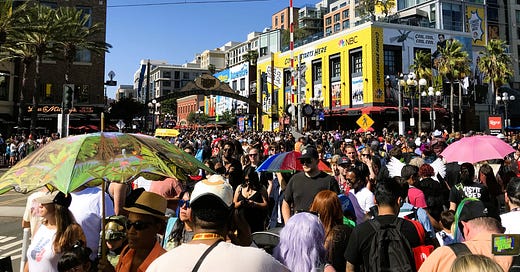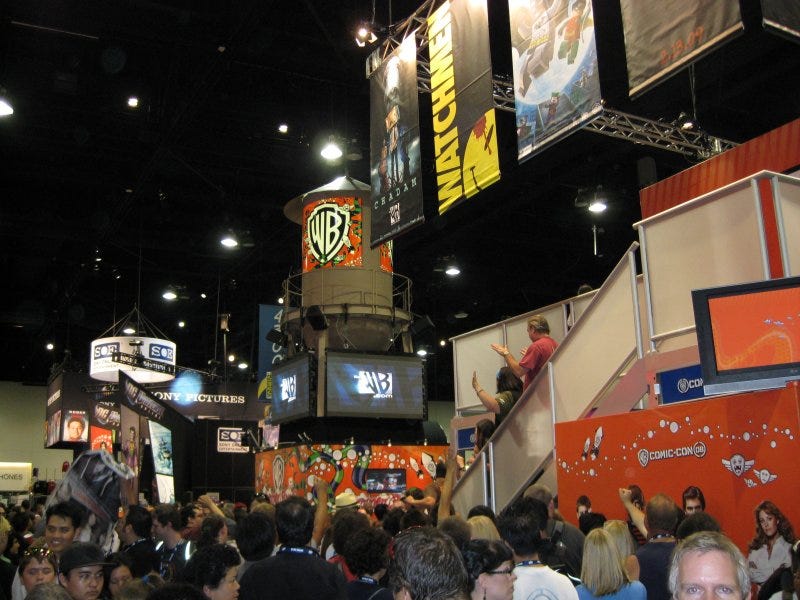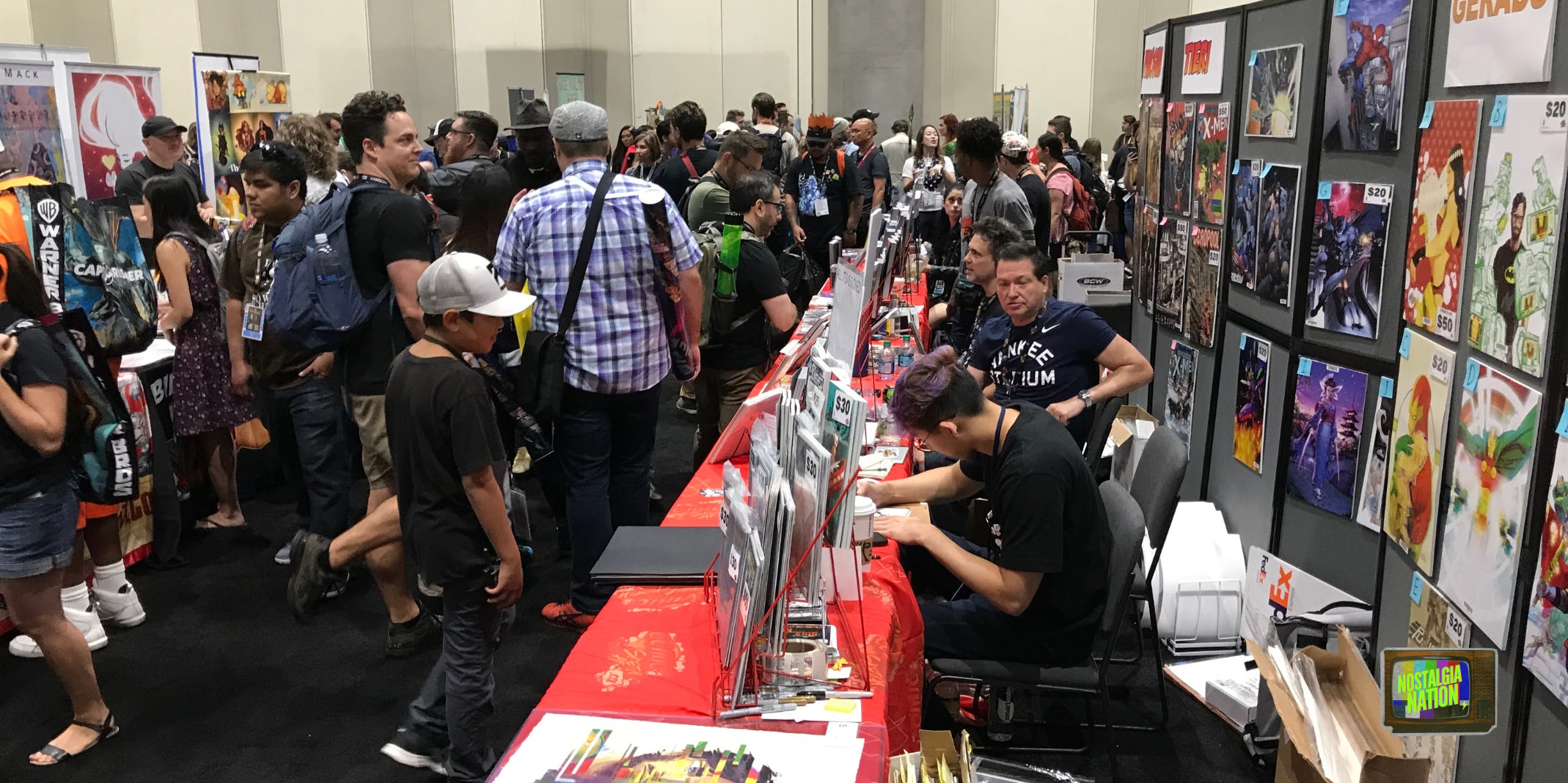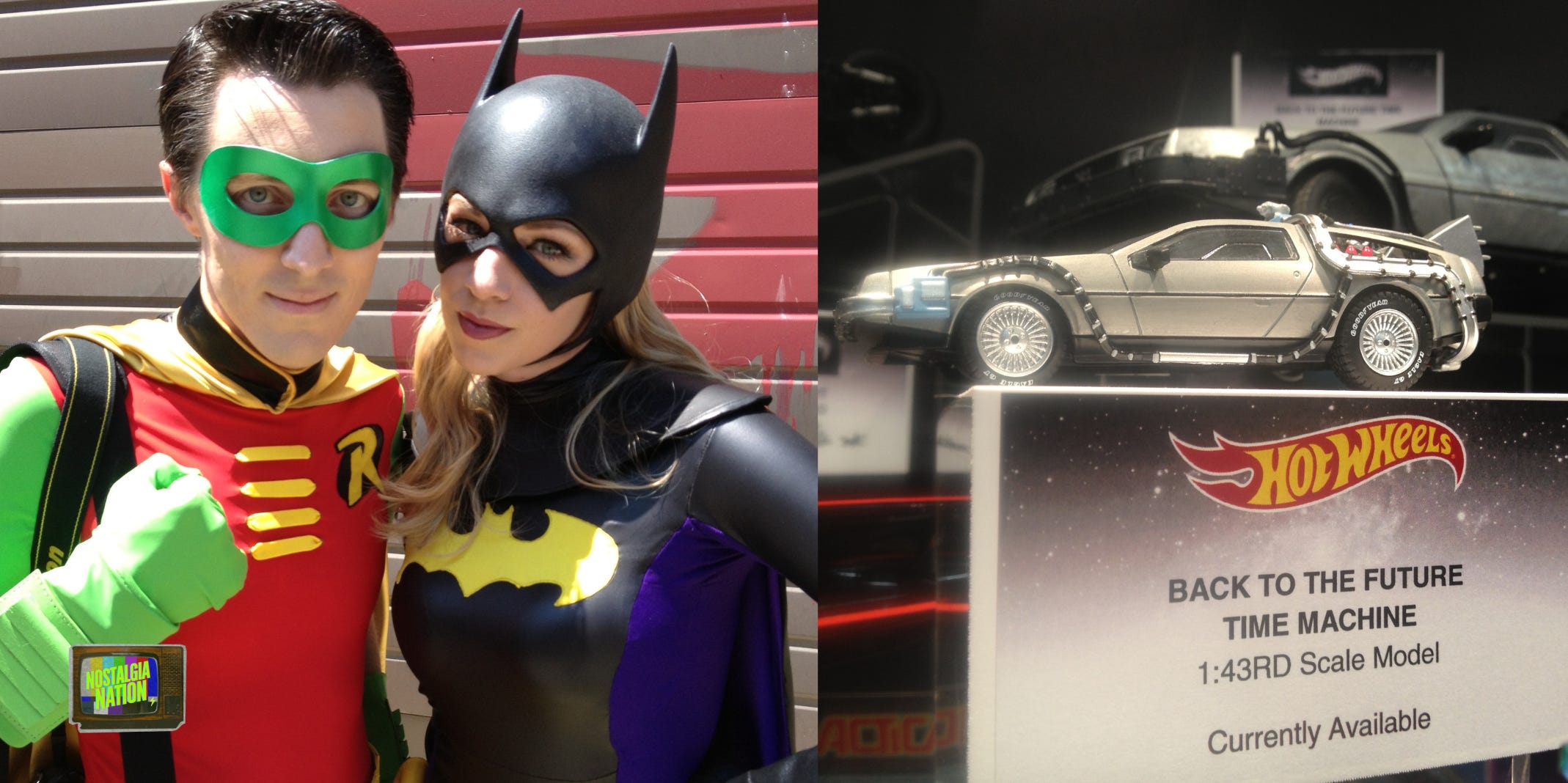San Diego Comic-Con: From Pure Geekdom to Pop Culture Chaos?
A 33-year retrospective on the convention's shift from comics to Hollywood media circus
As the San Diego Convention Center buzzes with the energy of another Comic Con, and Comic Con comes to a close, I find myself reflecting on my first experience at this pop culture extravaganza back in 1991. That year marked the convention's debut at its current home, and for a wide-eyed comic book enthusiast like myself, it was nothing short of magical. I was fourteen years old, and comic books were life!
Fast forward to today, and Comic Con has transformed into a behemoth that dominates not just San Diego, but the global entertainment landscape. While it remains an unparalleled celebration of fandom, longtime attendees like me can't help but feel a tinge of nostalgia for the Comic Cons of yesteryear. Back when comic books reigned supreme.
Every year since the mid-2000s, I find myself thinking back to when the convention floor was a treasure trove of long boxes filled with back issues, new releases, and rare finds. Artists' Alley was the heart of the event, where fans could meet their favorite creators, watch live sketching, and even commission personalized artwork. I used to carry an artist pad with me to collect sketches and I still have them!
The atmosphere was intimate and electric, with passionate discussions about storylines, art styles, and industry news happening in every corner.
As the years passed, Comic Con began to expand its horizons. The late '90s and early 2000s saw the gradual introduction of other media. TV shows with cult followings found a home here, and Hollywood began to recognize the potential of this gathering of enthusiasts. Video game companies followed suit, eager to tap into geek culture. This diversification brought new life and excitement to the convention, attracting a broader audience and elevating Comic Con's profile.
Today's San Diego Comic Con is a far cry from its humble beginnings. It's a massive, multi-genre extravaganza that draws over 130,000 attendees annually. The biggest challenge for many is simply getting a ticket, with online waiting rooms and sellouts occurring in minutes. There was one year, 2019, my wife bought me tickets from someone on Offer Up (the app) because I couldn’t get tickets through the Comic Con ticketing process.
Once inside, navigating the crowded halls can be an adventure in itself. The convention center and surrounding Gaslamp Quarter are transformed into a pop culture playground, with interactive experiences, celebrity sightings, and exclusive merchandise around every corner.
Despite the obvious changes over the years, Comic Con still offers unparalleled experiences for fans. The thrill of being among the first to see a trailer for an anticipated blockbuster, the chance to ask questions directly to the stars of your favorite show, or the opportunity to network with like-minded creators – these moments continue to make Comic Con special. The cosplay scene has exploded, turning the convention into a living gallery of fan creativity and craftsmanship.
However, this tremendous success has come at a cost. The intimate feel of the early days has been replaced by a sometimes overwhelming sensory experience. Comic books, once the cornerstone of the event, now compete for attention with flashy Hollywood panels and elaborate gaming showcases. Many longtime comic creators and smaller publishers find themselves overshadowed by corporate booths and promotional events for major franchises.
As a San Diego resident, I've witnessed firsthand how Comic Con has transformed our city each July. While the economic impact is undeniable, the sheer scale of the event can be daunting. Even for someone who lives mere miles from the convention center, the prospect of battling crowds, limited parking, and sky-high hotel prices can make attendance feel like more trouble than it's worth.
Yet, for all its changes, Comic Con remains a unique and vital part of the entertainment landscape. It's a place where fans from all walks of life come together to celebrate their passions, where industry professionals can connect directly with their audience, and where the next big thing in pop culture might be just around the corner booth.
Can The Spirit of Comic Con Return?
To recapture some of the magic that made Comic Con special in its early years, organizers might consider ways to reemphasize comic books and independent creators. Dedicated spaces for comic-focused panels and events, increased prominence for Artists' Alley, and initiatives to support up-and-coming talent could help balance the Hollywood circus with grassroots creativity.
Addressing the logistical challenges of its size is crucial for improving the attendee experience. Expanding to nearby venues, implementing better crowd management systems, and possibly extending the duration of the event could help alleviate some of the congestion issues. I realize there are limitations in events this size, but there have been days that I’ve gone and said to myself, this might be the last time I show up to this thing.
San Diego Comic Con's journey from a small gathering of comic book enthusiasts to a global pop culture bucket list event is a testament to the power of fandom. While it may have outgrown its origins in many ways, the spirit of celebration and community that defines Comic Con remains intact.
It’s still fun to attend. I think it’s much more enjoyable to attend on your own or with your adult friends. I don’t see a time where I would take my young kids to Comic Con again. At least not until they can fend for themselves.
For those who remember the early days, there's certainly nostalgia for a simpler time. But even as we reminisce, we can appreciate how Comic Con has brought nerd culture into the mainstream, validating and amplifying the passions of millions.
As another Comic Con wraps up, I'm reminded that San Diego Comic Con is a place where imagination knows no bounds, where every genre and medium can find its audience, and where the next generation of creators can promote their work to an excited audience. If Comic Con can find a way to honor its roots while embracing its role as a pop culture juggernaut, as well as work on the logistics more, it will continue to be a must-attend event for years to come.
For longtime fans and curious newcomers alike, San Diego Comic Con remains a bucket list experience. It may have evolved beyond its humble beginnings, but at its core, it's still a celebration of the stories, characters, and creativity that bring us all together. Here's to hoping that future Comic Cons can strike a balance between spectacle and substance, ensuring that the spirit of those early gatherings lives on in this grand, ever-expanding universe of fandom.
Ps/ What are your thoughts about Comic Con? Are you still attending, did you give up some time ago, or are you still in love with the show?










Thanks for the breakdown! I've been on the fence about this for a long time. As an east coaster, I've had ideas about going to SDCC for awhile. Appreciate the post!